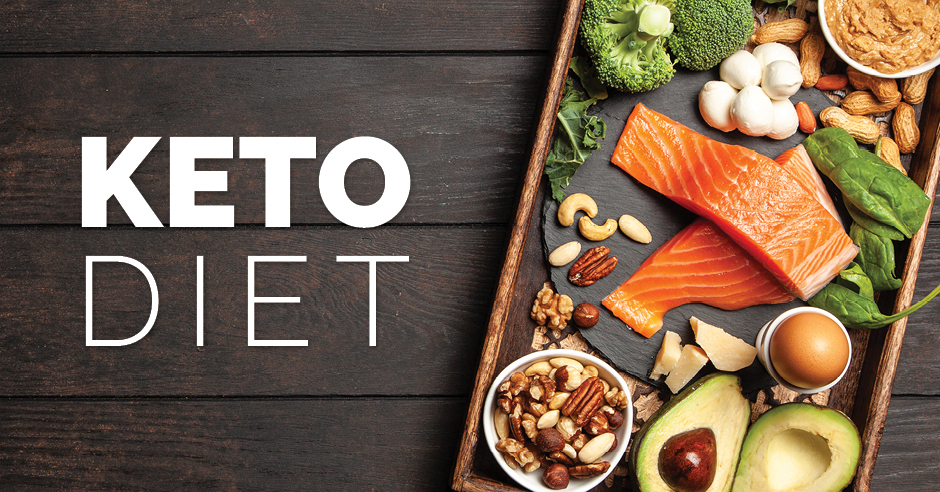What is the Ketogenic Diet?
The ketogenic diet is a high-fat, low-carbohydrate diet that has been shown to promote weight loss and improve certain health conditions, such as diabetes and epilepsy. The diet works by causing the body to enter a state of ketosis, in which it begins to burn fat for fuel instead of carbohydrates. This typically involves consuming less than 50 grams of carbohydrates per day and increasing the amount of fat and protein in the diet. The diet has been studied for its potential benefits in treating a variety of health conditions, but more research is needed to fully understand its effects.
Are there different types of Ketogenic Diets?
There are several different variations of the ketogenic diet, including:
- Standard Ketogenic Diet (SKD): This is the most common type of ketogenic diet and typically involves consuming 75% fat, 20% protein, and 5% carbohydrates.
- Cyclical Ketogenic Diet (CKD): This involves periods of higher carbohydrate intake, usually 5-6 days of a standard ketogenic diet followed by 1-2 days of higher carbohydrate intake (carb loading).
- Targeted Ketogenic Diet (TKD): This is similar to the CKD, but the additional carbohydrates are consumed around the times of workout or intense physical activity.
- High-Protein Ketogenic Diet: This variation is similar to the standard ketogenic diet, but it includes a higher proportion of protein, usually around 25-30% of total calories.
- Dirty Keto: This is a version of the diet where people eat processed foods and don’t care about the macro nutrient ratios, as long as they are staying under the net carb limit.
It is important to note that the ketogenic diet should always be followed under the guidance of a healthcare professional, as it can have side effects and may not be appropriate for everyone.
The Ketogenic Diet Can Help You Lose Weight
The ketogenic diet can help with weight loss, and research has shown that it can lead to significant reductions in body weight and body fat. This is because the diet causes the body to enter a state of ketosis, in which it begins to burn fat for fuel instead of carbohydrates. Additionally, the high-fat and low-carbohydrate content of the diet may also lead to feelings of fullness, which can help to decrease overall calorie intake.
However, it’s important to note that weight loss can be achieved through many different types of diets and lifestyle changes, and not all of them are healthy. Also, weight loss is not only dependent on the diet but also on factors like physical activity, sleep and stress management. It is important to consult with a healthcare professional before starting the ketogenic diet, especially if you have any medical conditions or take any medications.
Which Supplements Are Good For Ketogenic Diets?
There are several supplements that can help support a ketogenic diet, including:
- MCT Oil: Medium chain triglycerides (MCT) oil is a type of fat that is easily converted into ketones by the liver, making it a great supplement to support ketosis.
- Exogenous Ketones: These supplements provide the body with ketones, which can help to increase the level of ketones in the blood and support ketosis.
- Electrolytes: A ketogenic diet can lead to electrolyte imbalances, such as low levels of sodium, potassium, and magnesium. Consuming supplements or adding more of these electrolytes to your diet can help to prevent these imbalances.
- Fiber supplements: since ketogenic diets are low in fiber, fiber supplements like psyllium husk, chia seeds, or flax seeds can help preventing constipation and bowel irregularity.
- Vitamin D and omega-3 supplements: these are important for overall health and are often lacking in a ketogenic diet.
It’s important to note that these supplements should always be taken under the guidance of a healthcare professional, as they may not be appropriate for everyone and could interact with certain medications.
Ketogenic Friendly Foods and Meal Plans
Here are some examples of foods that are typically included in a ketogenic diet:
- Meat: Beef, chicken, pork, and other meats are all high in fat and protein, making them a great option for the ketogenic diet.
- Fish and seafood: Fish like salmon and tuna, and seafood such as shrimp and crab are also high in fat and protein.
- Eggs: Eggs are a great source of protein and healthy fats, and can be prepared in many different ways.
- Dairy: Milk, cheese, and yogurt can be consumed in moderation, as long as they are full-fat varieties.
- Nuts and seeds: Almonds, walnuts, macadamia nuts, sunflower seeds, and pumpkin seeds are all good options for a ketogenic diet, as they are high in healthy fats and protein.
- Low-carb vegetables: These include broccoli, cauliflower, spinach, kale, and other leafy greens.
- Healthy fats: Such as olive oil, avocado oil, coconut oil, and butter.
- Berries: Some berries like strawberries, raspberries, and blackberries can be consumed in moderation, as they have lower carbs than other fruits.
It’s important to note that it is important to consume whole foods and avoid processed foods as much as possible, as these often contain added sugars and other unhealthy ingredients.
Keto Friendly Meal Plans:
- https://ketosummit.com/free-keto-meal-plan/
- https://www.bodybuilding.com/content/ketogenic-diet-your-complete-meal-plan-and-supplement-guide.html
- https://diabetesstrong.com/ketogenic-meal-plan/
The Bottom Line
The ketogenic diet may be beneficial for certain groups of people, including:
- People with obesity: The high-fat, low-carbohydrate content of the diet may lead to feelings of fullness and decreased overall calorie intake, which can promote weight loss.
- People with type 2 diabetes: A ketogenic diet may help to improve blood sugar control, lower insulin resistance and reduce the need for diabetes medication.
- People with epilepsy: The ketogenic diet has been used for decades as a treatment for certain types of epilepsy, particularly in children.
- People with neurological disorders: Some studies have suggested that a ketogenic diet may have potential benefits in treating conditions such as Alzheimer’s disease, Parkinson’s disease and brain tumors.
- Athletes or people who are physically active: Some studies have shown that ketogenic diet can improve performance in high-intensity and endurance exercise.
It’s important to note that the ketogenic diet should always be followed under the guidance of a healthcare professional, as it may not be appropriate for everyone and could interact with certain medications or have other side effects. It is important to consult with a healthcare professional before starting the ketogenic diet, especially if you have any medical conditions or take any medications.




